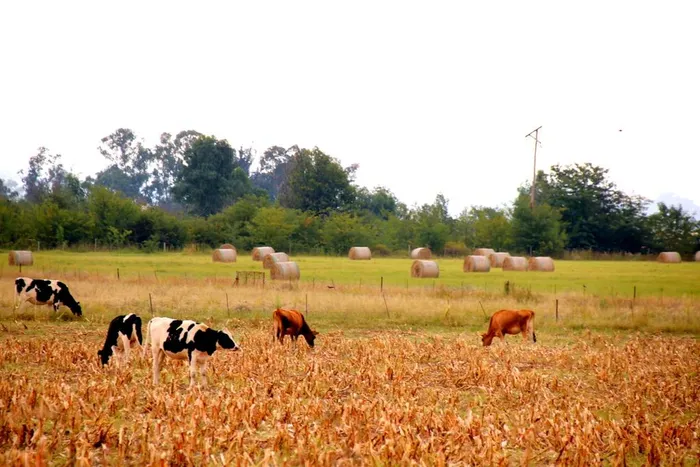Department held liable for crop damage caused by Working for Water
The North Gauteng High Court has ruled that the Department of Environmental Affairs was responsible for the contamination of dams on farms in Limpopo.

The Department of Environmental Affairs has been found liable for damages suffered by two Limpopo farmers.
Image: Nicola Mawson
The Department of Environmental Affairs has been found liable for damages suffered by two Limpopo farmers after herbicide used in the Working for Water (WfW) programme contaminated their irrigation system and destroyed their crops.
The North Gauteng High Court ruled that the Department was responsible for the contamination of dams on farms in the Alma district in Limpopo, where Petrus Johannes Barnard and Nicolaas Röntgen were commercial farmers. They were cultivating a variety of crops such as pumpkins, watermelons and tobacco for commercial gain, as well as raising livestock such as cattle and sheep.
WfW allegedly used a harmful chemical called picloram, without following instructions, to remove alien vegetation from the farms.
In the ruling, the court found that “the plaintiffs suffered damage as a consequence of wrongful action” and that “the persistent nature of picloram toxicity implies that... they may continue to suffer damage for an undefined period into the future”.
Agriculture was the driver of the 0.1% first-quarter gross domestic product (GDP) gain, which defied expectations.
Barnard applied for assistance from the WfW programme in January 2015 to clear the alien vegetation from the farm. An agreement was signed, but work only started in October 2015, which was beyond the six-month timeframe set out in the agreement. A follow-up treatment to completely rid the farms of alien plants took place in June/July 2016.
The court stated that “the agreement had lapsed after a period of six months” and noted that the follow-up work was “performed in a grossly negligent and unlawful manner by applying the dangerous herbicide, Kaput 100 Gel, containing picloram” near dams used to irrigate crops.
During their testimony, the plaintiffs argued that the follow up treatments, during which WfW used picloram label, was illegal and was tantamount to “criminal conduct”.
Expert witnesses for both plaintiffs agreed that the herbicide was applied in a sensitive water catchment area, and “the presence of picloram in the irrigation dam was confirmed by a South African Bureau of Standards report”. The pesticide contaminated the water.
The court also noted that “irrigation of the plaintiffs' tobacco plants with the contaminated water destroyed the plaintiffs' crop” and “very low concentrations of picloram are known to destroy such crops”.
The Department argued that the work was carried out by an independent contractor and that a tacit agreement revived the original terms, including a clause indemnifying it from liability. But the court rejected this defence, stating that there was “no evidence of any joint inspection including all the parties” and that the inspection report provided was “a disputed document, fraught with contestation”.
One of the Department’s witnesses, who claimed the work was signed off by the plaintiff, was found to be unreliable. The court said that “this witness did not come across as credible”.
The court also found that the Department “did not, itself, comply with the terms of its own purported contract” and “had not requested its representative to do any rehabilitation work on the farm, although [one of its representatives] had been informed of the complaints”.
The ruling confirmed that “there can be no doubt that there was damage to the plants, soil and irrigation water on the farm” and “that the source of the damage was the application of Kaput 100 Gel, with the active ingredient picloram”.
The court concluded that “the Defendant is liable for the Plaintiffs’ damages, both past and future,” as a result of the work by WfW. The amount of compensation will be determined in a separate trial.
IOL Business